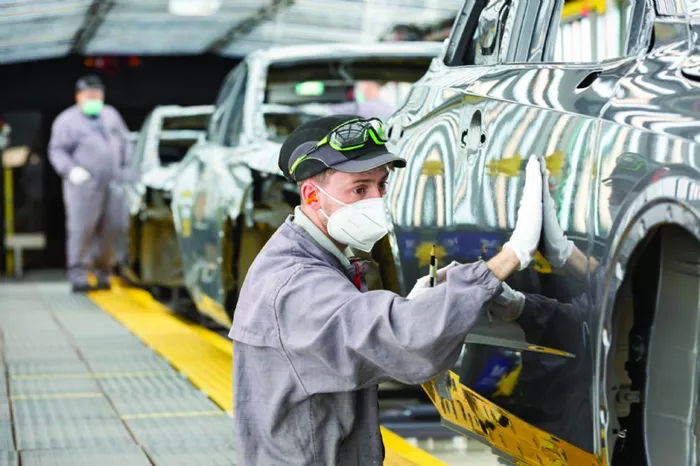UK car and commercial vehicle production saw a sharp decline of 11.6% in February, with only 82,178 units manufactured. This marks the 12th month in a row that output has fallen, according to new figures from the Society of Motor Manufacturers and Traders (SMMT). The production of cars, vans, trucks, taxis, buses, and coaches dropped by 10,787 units compared to February of the previous year. Several factors contributed to this downturn, including weaker markets both in the UK and abroad, model changes, and plant restructuring.
In this 12th consecutive month of declining production, the majority of output was still directed toward exports, with over 80% of vehicles shipped abroad. The number of exported units rose slightly by 1.3% to 60,034. However, production for the UK market plummeted by 33.3%, totaling just 13,780 units. The European Union remained the largest destination for UK-made cars, accounting for 53.5% of exports, followed by the USA at 19.7% and China at 6.3%. Notably, while exports to the EU and China fell by 9.6% and 10.9%, respectively, exports to the USA surged by 34.6%. Shipments to Turkey and Japan also saw significant growth, increasing by 75.5% and 119.2%, respectively.
Electric Vehicle Production Holds Steady
The production of electric, plug-in hybrid, and hybrid cars also experienced a decline of 5.6%, falling to 27,398 units in February. However, their share of total production increased slightly, rising from 36.3% to 37.1%. For the year-to-date, electrified vehicles now account for 39.6% of UK production, up from 36% at the same point last year, despite a 2.1% fall in volumes. This decrease is still less severe than the overall decline of 11% in total car production.
Commercial Vehicle Output Drops
Production of commercial vehicles (CVs), including vans and trucks, dropped by 35.9% to 8,364 units. This decline follows a strong February last year, when output nearly doubled to reach the best performance since 2008. Domestic demand played a major role, accounting for 55.2% of the CV output, which increased by more than 50% to 4,621 units. However, CV exports fell sharply by 62.7%, with 93.8% of those exports directed to the EU, marking a significant drop of 5,956 units.
Industry Calls for Urgent Support
The latest figures highlight the ongoing struggles of the UK’s automotive sector, which is grappling with challenges in both domestic and international markets. The SMMT has called for urgent measures to boost the UK’s competitiveness and stimulate consumer demand. The group criticized the recent Spring Statement by the Chancellor, noting that it missed an opportunity to support the industry and consumers. This lack of support could delay the sector’s ability to contribute to the UK economy’s growth.
The SMMT also emphasized the importance of the upcoming Industrial and Trade strategies, urging the government to act quickly to demonstrate that the UK is open for business. Additionally, they called for immediate implementation of the £2 billion Automotive Transformation Fund promised by the government.
The SMMT further stressed the need for policies to support the transition to electric vehicles (EVs). Among the recommendations were cancelling the Vehicle Excise Duty (VED) Expensive Car Supplement for EVs, reducing VAT on public charging and new battery electric vehicle (BEV) sales, extending the Plug-in Truck Grant, and introducing mandatory infrastructure rollout targets. These measures, the SMMT argued, would complement the industry’s investment in new factories, models, and discounts, encouraging both manufacturers and consumers to embrace electric vehicles.
Industry Faces Growing Pressure
Mike Hawes, Chief Executive of the SMMT, expressed concern over the ongoing decline in UK car production and the weak demand affecting the industry. He highlighted rising trade tensions and the slow pace of the market transition, especially in terms of EV adoption. While the industry has the potential to achieve growth—particularly in green technologies—Hawes stressed that this growth depends on government policies that support the sector’s transition to zero-emission mobility. He also expressed disappointment that the Spring Statement did not provide relief for manufacturers and highlighted the risk posed by new fiscal measures, which may discourage consumer investment.
Without significant regulatory changes, the viability of UK manufacturing and the country’s transition to cleaner transportation remain under threat.

